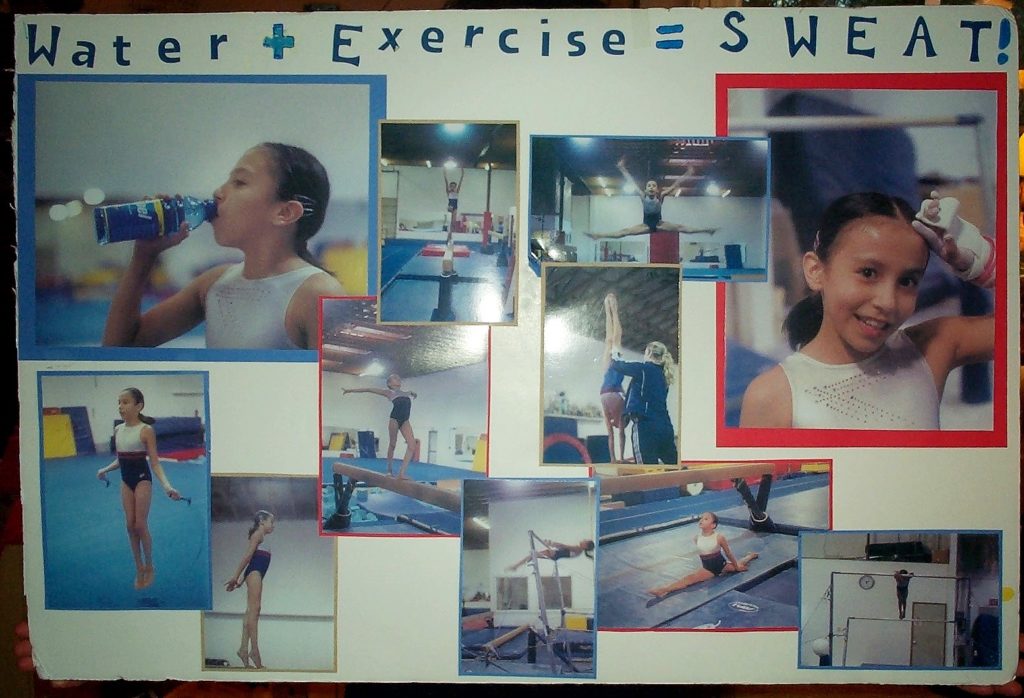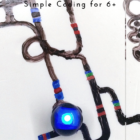I have worked through many, many, many science projects and reports with my children over the years.
When it goes well…
I have a pretty basic philosophy about my kids’ dedication to school work. I will always encourage and provide requested supplies and advice. But most of the time, I just get out of the way and let my child do the work to the best of their ability. There is an incredible pride in owning their own work at their level of ability.
***** I am an affiliate with several advertising groups . This allows me to earn a commission if you make any kind of purchase through the links I provide. There is no extra cost to you. *****
Some of my children love science. Their brains think science — why and when and what and how things work. Some of these kids have too many ideas and my best help is to try to reign in their inquiry into reasonable sizes. I always love those reports. We’ve done plant projects, coffee stain projects, music projects, light projects, technology projects and once, even the inevitable volcano project. I feel successful as a parent when my kids feel successful in their own work.
When it doesn’t go well…
Some of the science work, though, has been a pure grind for my child and for me. These sad episodes happen when the kid is not interested in science at all, when that particular child is going through a rough time emotionally and mentally and just can’t focus on anything (a pretty common scenario for kids of trauma), and/or, more rarely, when all school work is just a struggle in all ways and they are tired of trying. In those instances, I will admit to putting more effort into the homework than they do.
When it becomes apparent that a particular child is just not going to be able to work through whatever is going on, I step in and give them a boost. Sometimes, it’s important that someone who is struggling with so much in their young life gets a loving break. At those times, I will work with the teacher and be honest about our division of labor. I will help pick a topic, help do the research, take turns doing an experiment or writing a report. I make sure they are learning along the way and can explain the report/project in the end. But sometimes, I am giving them step by step directions along the way.
Beatrice
The above scenario was such the case with Beatrice when she was in 5th grade. But somehow, mid-project, she turned herself around and took a particular science report farther than I would have imagined. It was so much fun to watch her process!
Beatrice came to live with me at 4 years old with extreme anxiety. She cried ALL. THE. TIME. So much of it had healed by the time she was 11 and she was making great strides in confidence and in effort in all things. I attribute much of her emotional growth to her gymnastics. She started training in the Junior Olympic program about a year after she came to me (all driven by her), and by 5th grade, she was competing in front of judges and hundreds of people. She still had anxiety at every new skill and every new level and every new meet. But her love of gymnastics overcame her fear every time.
However, when a new science report was assigned that year, Beatrice panicked. Why? Because they were going to have present their reports in front of the whole class. For some reason, all of her confidence fled and she was paralyzed with anxiety and could not approach the new assignment for weeks.
I had to baby-step Beatrice towards the report and her teacher gave her permission to present only to him and not to the class. That concession eased her anxiety enough to talk through some of the baby-steps.
Beatrice and her Sweat

Baby Step One: “What is something you like to do?” “That’s easy! Gymnastics.”

Baby Step Two: “Is there something about gymnastics you don’t like?” “Conditioning.” Why?” “Because I sweat too much.” “You don’t like to sweat?” “NO!”

Baby Step Three: “Maybe you can figure out how to solve the problem of sweating?” “OK.”
To make the story shorter…. I found some material online that explained why people sweat. I told her that if she learns why it happens, maybe she can figure out how to make it stop. That piqued her interest enough to keep reading and keep searching for more. In the meantime, I asked if she would like some pictures of her sweat to go with her report. She asked her coach if she and I could come in to the gym for a while and take photos while she worked out. That was a “yes.”


In the meantime, she started to get more curious and asked other people if they know why they sweat. She started to learn why sweating is important as a cooling mechanism and how to stay safe if you are sweating a lot. She changed her mindset about how awful getting sweaty was and finished her report with recommendations for hydration and staying cool.
By the time she had finished her research, conditioning was still her least favorite part of gymnastics, but she told all of her teammates about how important sweating was.

And….. she gave her report to her entire class, complete with gymnastics pictures! Yay!





Patricia Fidrych
You’re doing the right thing with helping out. As a teacher (and a science teacher at that…) I can tell you that some students (most) could use help with executive functioning skills, especially students dealing with anxiety and trauma. There are some neat tools like “Get ready, do, done” that can help but sounds like you’re doing a great job already. Sometimes kids only see the whole elephant of a project and dread it. But as I was taught a long time ago the only way to eat an elephant is bite by bite. Break it down. One step at a time. 🙂
Karla
Thanks, Patricia. It’s always a process and pulls every parental skill I have into play!!!!